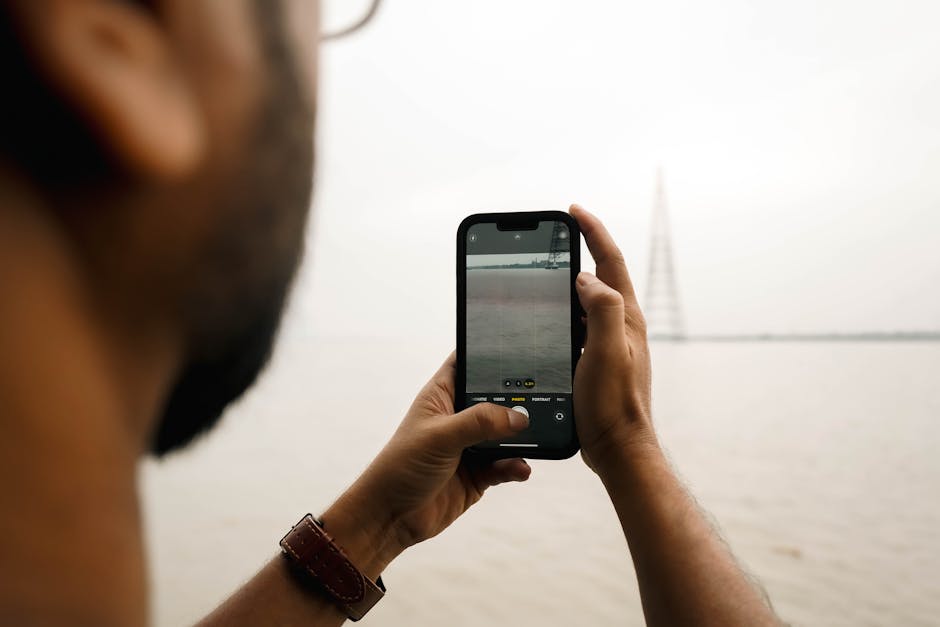The modern traveler is digitally savvy, demanding personalized interactions and seamless experiences. Technology’s impact on the travel and tourism industry is profound, transforming how we plan, book, and interact with destinations. This article explores the multifaceted ways technology is enhancing the tourist experience, from pre-trip planning to post-journey reflections.
Pre-trip planning, once a labyrinthine process of sifting through countless brochures and websites, is now a streamlined, personalized journey. Mobile applications have become indispensable tools, offering comprehensive travel guides, real-time information on attractions, and the ability to compare prices across diverse travel providers. Booking flights, hotels, and activities is remarkably quicker and more efficient. These apps facilitate the creation of custom itineraries, enabling travelers to meticulously tailor their experiences to their preferences. Moreover, virtual reality (VR) and augmented reality (AR) technologies are revolutionizing the pre-trip exploration phase. Potential destinations can be explored virtually, immersing travelers in the sights, sounds, and atmosphere without physically being present. This technology allows for a pre-emptive assessment of potential experiences and helps narrow the field to destinations best suited to specific interests. Imagine walking through a Parisian museum or hiking in the Andes through a VR headset all without leaving home. This technology not only saves time but also boosts the excitement of the upcoming trip.
Beyond the digital realm, the integration of wearable technology is reshaping the on-the-ground experience. Fitness trackers and smartwatches empower travelers to log their activities, stay connected with loved ones, and even translate foreign languages in real time. This aspect is crucial for independent travelers. Moreover, these gadgets facilitate navigation and accessibility, seamlessly incorporating GPS and real-time maps into daily schedules.
The impact extends to the social sphere. Social media platforms act as crucial channels, fostering a sense of community amongst travelers. Sharing experiences, recommendations, and insights through these platforms becomes a vital part of the journey, providing real-time perspectives from fellow travelers. A key aspect is the instantaneous feedback mechanisms these platforms offer. In real time, travelers can respond to issues, such as restaurant closures or unexpected travel delays, and adjust their plans accordingly. This collaborative nature extends to travel communities, facilitating the exchange of experiences and advice, enriching the overall travel experience and fostering a feeling of shared discovery.
Lodging options are also experiencing a remarkable transformation. Smart hotels leverage technology to offer personalized services, from automated check-in/check-out systems to customized room settings, enhancing comfort and convenience. These systems learn from guest preferences, adjusting lighting, temperature, and music to fit the traveler’s needs, creating a truly tailored and engaging environment. Additionally, this technology enables instant access to information, be it local weather updates or directions to nearby attractions, enhancing the experience.
Enhancing the visitor experience beyond the physical environment is another significant shift. Interactive exhibits and museums utilize technology to create immersive and engaging learning experiences. This approach transcends the traditional model of passive observation. The incorporation of interactive displays and digital narratives elevates educational encounters within the confines of cultural sites. Audio guides and personalized tours become dynamically interactive, catering to individual interests and offering more profound insights into the history and culture of destinations. Thus, technology redefines cultural tourism, fostering a deeper connection with history and preserving cultural heritage through innovative presentation.
From navigating a foreign country to exploring historical landmarks, technological tools are seamlessly woven into the fabric of modern travel, rendering the experiences more engaging, immersive, and efficient. Consider the integration of language-learning apps these tools empower travelers to learn basic phrases and navigate conversations with ease. Real-time translation services ensure effective communication across language barriers, fostering deeper cultural understanding and meaningful interactions with local communities.
The accessibility aspect of technology is another powerful dimension. Real-time travel information provides a crucial support system, particularly for those with disabilities, enhancing accessibility across all segments of the travel experience. Customized mobile applications offer seamless and convenient access to vital information for visually impaired travelers and people with mobility limitations, ensuring inclusivity and overcoming physical and informational barriers.
However, a vital consideration within this technological revolution is maintaining a balance between technology’s transformative power and the authentic human experience. While technology facilitates ease and efficiency, there is a crucial need to consider the potential downsides. The overload of information and the constant connectivity can detract from the experience of truly immersing oneself in a new destination. The importance of mindful digital detox strategies remains pertinent. Furthermore, the digital divide can create disparities in access to these technologies and services, limiting their benefits for certain demographics.
In conclusion, technology is rapidly reshaping the tourist experience, from simplifying pre-trip planning to enriching the on-site exploration. Mobile apps, VR/AR, wearable tech, and social media are all contributing to more personalized, efficient, and immersive travel experiences. However, careful consideration is required to ensure accessibility, maintain authenticity, and address potential downsides like information overload and digital exclusion. The future of travel is inextricably linked to technology, promising a more tailored, enjoyable, and inclusive experience for everyone who travels.






